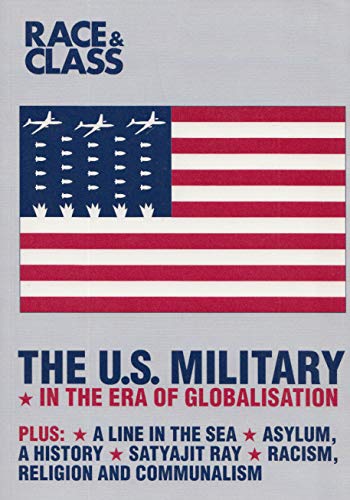Description
The US military in the era of globalisation, by Jerry Harris
The terrorist attacks of September 11 catapulted US military policy to the forefront of world attention and concern. Sections of the US ruling class have seized the crisis to advance a hegemonic and unilateralist strategy. But powerful globalist forces have argued that only multilateralism can ensure stability for capitalist expansion. This struggle is reflected within the military/industrial complex over a range of issues, including the nature of intervention, the need for allies, weapons systems, and the arms market.
A line in the sea, by Suvendrini Perera
The story of the Tampa, a Norwegian container ship which rescued four hundred asylum seekers from a sinking boat off the Indonesian archipelago in the first week of September 2001, is part of an unfolding global story of the West’s reaction to people seeking refuge. The Australian government refused the ship permission to land and armed troops boarded the ship and forcibly moved it out of Australian waters. In the following week, the Australian parliament rushed through unprecedented measures to keep out asylum seekers, measures which were strikingly similar to those proposed by Tony Blair the following May.
Asylum and the lessons of history, by Liza Schuster
The present debate about asylum generally occurs against a background that presumes that liberal democracies have a long and honourable tradition of granting asylum, and that this generous and discretionary act has, over the last ten to fifteen years, been increasingly exploited by those who are not entitled to the protection of asylum. Yet, in fact, asylum predates liberal democracies by millenia, and states’ asylum practices have always reflected their own interests and, only incidentally benefitted individuals.
Cinema and universality: Satyajit Ray’s ‘Apur Sansar’, by Keya Ganguly
The final part of Ray’s ‘Apu trilogy’ provides an opportunity to explore the idea that cinema has a unique ability to conjure up the universality of a predicament, our experience of the everyday as profound. Whereas identity politics emphasises the locality of cultural expressions, cinema attains to capture their expansiveness, especially when they have to do with sentiments and desires that are ineffable.
An unholy alliance? Racism, religion and communalism, by Arun Kundnani
September 11 has fuelled the growth of religious divides among South Asian communities in Britain, leading to occasional outbreaks of street violence and, on an institutional level, dissatisfaction with the secular term ‘Asian’. Recently the extreme-Right British National Party has sought alliances with right-wing Hindu and Sikh groups as part of its attempts to remodel itself as an anti-Muslim party. And the UK provides an important base for Hindu nationalist groups such as the World Hindu Council.
Race & Class is published quarterly, in January, April, July and October, by Sage Publications for the Institute of Race Relations; individual subscriptions are £27/$47, for four issues, with an introductory rate of £20/$35 for new subscribers.




